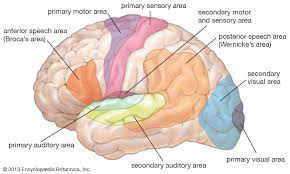Joseph F. Patrouch, Jr,
The Science Fiction Of Isaac Asimov (Frogmore, St Albans, Herts, 1976).
This point may be merely terminological but is also somewhat odd.
First, we must clarify at least three levels of consciousness:
(i) mere sensation, feeling hot, cold, hungry etc - this must be how consciousness began;
(ii) perception of discrete objects - clearly cats, dogs and many other animals do this;
(iii) rational self-consciousness - on Earth, at least, we attribute this to only a single species.
(iii) incorporates (ii) which incorporates (i). (i)-(iii) is a spectrum but with vast qualitative differences. Human beings refine reason and reflection by internalizing symbolic/linguistic communication.
Sf writers imagine (iii) in extraterrestrial species. Poul Anderson's World Without Stars, The Earth Book Of Stormgate and The Rebel Worlds begin with alien points of view. Anderson wrote several stories about human-Ythrian interactions, wrote some passages in The People Of The Wind from Ythrian povs and clearly could have written an entire story from such a pov. Speculation about alien consciousness is a major part of sf.
Patrouch describes sf as examining "...scientifically plausible alternate settings for human consciousness." (p. 15) This is where the terminological conundrum arises. Patrouch describes two approaches. "Human consciousness" is either consciousness in a humanoid body or a human level of consciousness in a body of any shape. Patrouch claims that sf takes the second approach, thus that a creature of any shape can be conscious and intelligent and thus human. Clearly, we do not usually use the word "human" in this sense. Human beings are just one kind of intelligent beings. We could call all intelligent beings "human" but that would be to extend the meaning of the word and in practice we do not usually do this.
"Thus stories about aliens are really stories about ourselves, about what our physiques and psychologies would be if our environments happened to be different. Science fiction is a series of lab experiments, of demonstrations, on the subject of what I would have been like (would be like) under different environmental circumstances: the relationship of setting and psychology." (p. 17)
A story can be about me if it is about how I would react to changed circumstances but it is not about me if it is about an entirely different being in any entirely different circumstances. That is about someone else.
The first person singular pronoun, "I," has two referents. The empirical "I" or "me" is the person that I am as perceived by myself and others: white, male, heterosexual etc. The abstract "I" is purely a form of consciousness, empty of any empirical content. Any self-conscious being can think and say, "I perceive the world as consisting of...," followed by an exhaustive list of every single object of that being's consciousness. However, if that being's own empirically discerned properties, size, shape, sex, color, digestive system etc are listed among its objects of consciousness, then the "I" that is the subject of consciousness is an abstraction common to every self-conscious being.
A human being thinks, "I see..." A Merseian thinks, "I see..." But it is meaningless to say that the Merseian is what the human being would have been if his species had evolved on Merseia. The human being is what did evolve on Earth.










































